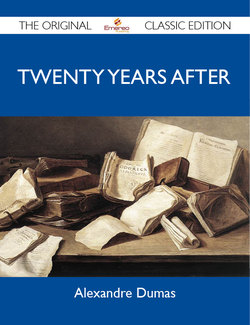Описание книги
It is twenty years after the first Musketeers saga and Athos, Aramis, Porthos and dArtagnan have all gone their separate ways. Midlife has mellowed the musketeers and definitely complicated their perceptions. Porthos has been indulging himself with his widows money and working himself up the caste ladder but is still not entirely accepted but the upper crust he wants to become. Aramis has gone into the church and, although he dreams wistfully of the days that he was a musketeer, his scheming has become more of a way of life than a troublesome quirk. Athos is the only one who still closely resembles the man he was in his youth. Even the hot tempered, rambunctious DArtagnan has settled in to his career as a professional soldier. He is now a musketeer for the paycheck instead of the glory. Yet all deep down reminisce of `the good old days – the only question is what will they do to recapture them. <p> Mazarin has replaced Richelieu as Cardinal and the queen, once persecuted by the previous Cardinal, is now in league (or at least in bed) with the despised Italian Mazarin. Though Mazarin is popularly hated by the people, DArtagnan jumps at the opportunity for advancement when Mazarin commissions him to reassemble the foursome ostensibly for the protection of the prince regent and queen. But the others have their own ideas about working for Mazarin and Dumas maintains a delicate balance as the four eventually do come to work together though not entirely on the same side. <p> Twenty Years After is more grounded in history than the first and I highly recommend this particular book for the notes in the back. For all the criticism that Dumas plays fast and loose with history, it depends on where you place your yardstick. He moves events around a bit with people coming back from exile a year or two early and a battle being fought several years later but, over all, this is really grounded in history. The bulk of the plot is the siege of Paris by the Queen (and Mazarin) in the late 1640s. The death of Charles I and the peasant revolt are more substantial historical events than the retrieval of the Queens diamonds in the first novel so expect a lot more complicated plot as far as people and events. Dumas knew his history (judging by the degree of deviation suggested by the notes) and though he might move or bend it, he still tried for plausibility. We also have a new arch enemy in this one – Lady DeWinters son, Mordaunt, who has come to seek revenge on the men who executed his mother in the first book. <p> While still a superb adventure story, this is a more adult tale with more emphasis on psychological motivations and the effect of time on a mans ideals and motivations. I enjoyed the first one more because of the less complicated plot and swift action but that is not to suggest that Twenty Years After is lacking in any way. When taken in conjunction with the first, the idea is brilliant and brings out many more elements that a simple `more of the same sequel just couldnt do.
